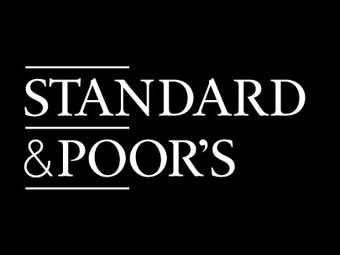S&P Reproves Regulatory Red-tape For Risible Ratings
Chris Hamblin, Compliance Matters, Editor, 31 October 2013

Nigel Greenwood, one of the directors at the ratings agency of Standard & Poor’s, reportedly told a recent media briefing that the new Financial Conduct Authority’s “vocal and engaged” manner might be constraining British banks’ creditworthiness and forcing them to cluster around the ‘BB’ point on the S&P scale. His colleagues added the thought that the rising tide of conduct regulation was one explanation for the fact that the banking industry as a whole has a ‘negative credit rating’.
Nigel Greenwood, one of the directors at the ratings agency of Standard & Poor’s, reportedly told a recent media briefing that the new Financial Conduct Authority’s “vocal and engaged” manner might be constraining British banks’ creditworthiness and forcing them to cluster around the ‘BB’ point on the S&P scale. His colleagues added the thought that the rising tide of conduct regulation was one explanation for the fact that the banking industry as a whole has a ‘negative credit rating’.
They also blamed low ratings on the recent cycle of scandals such as that surrounding Libor and payment protection insurance, along with the UK’s more litigious and restrictive regulatory environment. S&P’s analysts were also concerned about new costs that banks were having to shoulder as they tried to keep their staff compliant and added that more regulatory fines and compensation awards were probably in the offing, promoting further market unease and lower ratings.
The FCA has, in the meantime, started accusing advisory firms and life companies of ‘undermining the principles of the retail distribution review’ by temporising with these rising costs by continuing to solicit and receive ‘inappropriate’ payments that circumvent its ban on commission. It recently found that some payments by life insurers to advisory firms appeared to be linked to securing sales of their products (by spending on intangible resources such as research or management information). It uncovered incentives for advisory firms to promote specific providers’ products to their advisers and detected foul play in certain joint ventures between providers and advisory firms. In one example, the advisory firm was paid substantial upfront fees by the provider, with its profits increasing the more it channelled business into the joint venture. Just over half of the firms it sampled had agreements it considered could breach principle-for-business 8 which exhorts every firm to manage conflicts of interest fairly, both between itself and its customers and between one customer and another. This might have been the type of conduct that inspired Christopher Woolard, the FCA’s director of policy, risk and research, to tell a conference that competition in financial services was “not working.”












